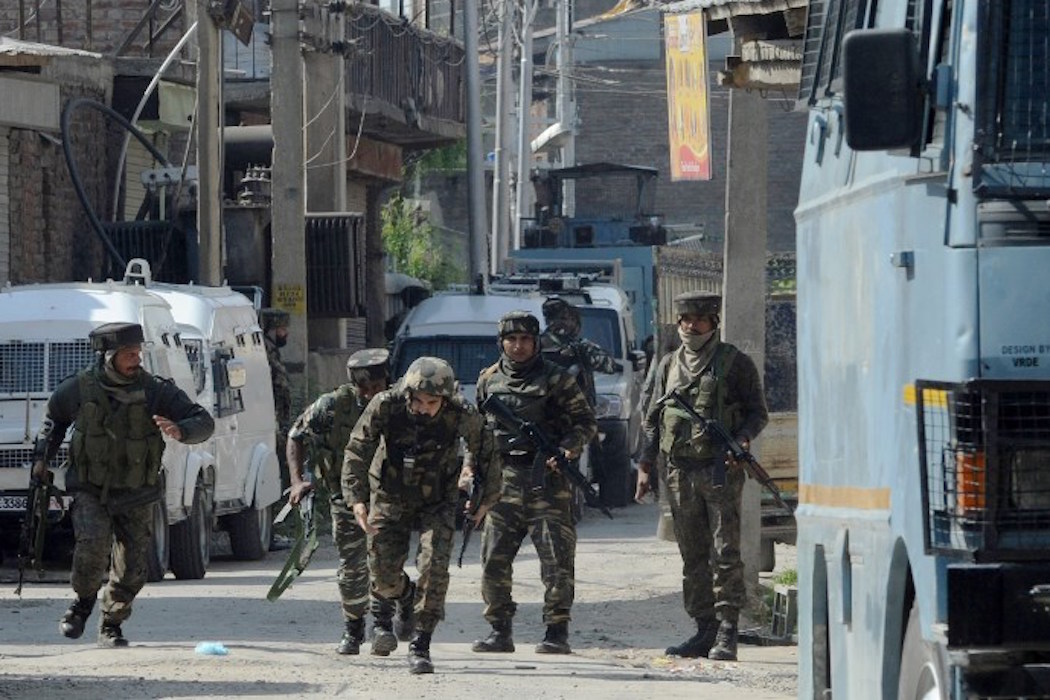Clashes have marred daily life in the Indian Muslim-majority region

Indian security personnel react during a gunbattle between security forces and suspected rebels in Srinagar on May 5. (Photo by Habib Naqash/AFP)
May 14, 2018
Jammu and Kashmir state has asked the Indian federal government to seek a ceasefire between militants and security forces during the month-long Muslim holy period of Ramadan from May 17.
Chief Minister Mehbooba Mufti said hopefully such a ceasefire could be extended until the end August to also cover the Muslim period of Eid and the Hindu pilgrimage season of Amaranth Yatra.
There have been heightened tensions and outbreaks of violence since May 6 when the army killed five militants, including a former professor of sociology from the University of Kashmir, Mohammad Rafi Bhat.
The academic had left home to join militants only two days before his death.
News of the killings triggered large scale street protests in which six civilians died, prompting separatist leaders to call for strike action.
Colleges remained shut even after a three-day curfew in volatile areas was lifted on May 9.
Kashmir’s chief Muslim cleric and separatist leader Mirwaiz Umar Farooq told ucanews.com that the Indian government was engaging in “genocide” against Kashmiris while failing to address the core issue of freedom
He said Kashmir had become an Indian colony occupied by 700,000 troops.
“The anger in Kashmir and the younger generation taking up arms is a clear indication that India has failed in Kashmir,” Mirwaiz said.
He added that the Ramadan ceasefire proposal, if adopted, could help achieve sustainable peace.
Since January 53 militants, 33 civilians and 13 soldiers have been killed in the violence.
Tasleem Ahmad, a young man in Kashmir, said armed resistance was a result of the Indian government declaring war on the people.
The violence in Kashmir spiked in July 2016 when the killing of militant leader Burhan Wani by the Indian army was followed by the deaths of 30 protestors in less than 24 hours.
Six months of subsequent strife claimed 90 lives and 11,000 people were injured.
Many locals see secessionist militants as freedom fighters.
The conflict dates back to 1947 when India and Pakistan became separate states after British rule ended.
Both countries claim Kashmir in full and have fought several wars and myriad skirmishes over it.
Past talks, supported by church officials and other groups, failed to find a lasting solution.
